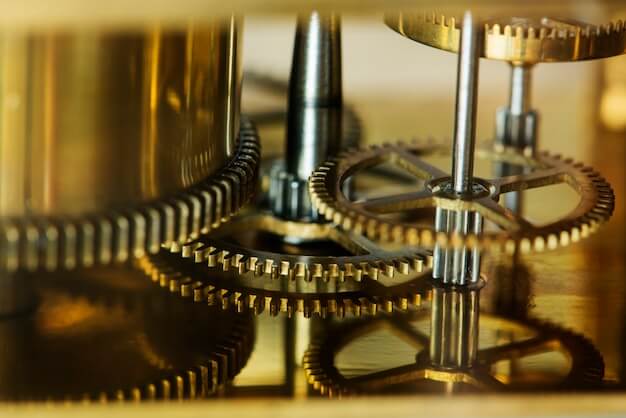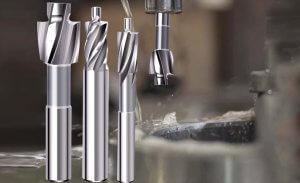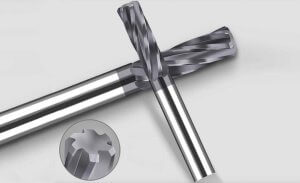Introduction to Custom Aluminum CNC Machining
Custom Aluminum CNC machining, where CNC stands for Computer Numerical Control, is a subtractive manufacturing process that employs computerized controls to operate and manipulate machinery and tools. It handles all computational geometry without human assistance, offering high precision and speed in producing complex machine parts and components.
The role of custom aluminum in this technique cannot be understated. Its lightweight nature, coupled with exceptional strength and corrosion resistance, makes it an excellent choice for numerous machining projects. Moreover, its thermal conductivity and non-magnetic properties make it highly desirable for electrical and electronic applications.
- Gives precise and consistent outcomes: With the help of programmed instructions, it’s possible to achieve repeated accuracy during production processes.
- Faster production rate overall: Without the need for manual adjustments throughout the process, CNC Machines can run continually which results in a much faster output compared to traditional machining techniques.
- Economically viable: By reducing waste materials and increasing production rates, CNC systems provide cost-effective solutions for industries such as aerospace, automotive, electronics, etc., where complex designs require fine detailing and high precision.
Understanding the Prototyping Process
In manufacturing, prototyping holds a pivotal role. It’s a developmental process involving quick and iterative production of physical models to test the functionality, design, or concept before mass production. This crucial step offers numerous benefits such as validating ideas, identifying issues early, saving time and cost in the overall production cycle, while also allowing alterations based on feedbacks and tests.
The Role of CNC Machining in Prototype Development
When it comes to prototype development, CNC machining proves instrumental. Custom Aluminum CNC machining allows for precise and rapid creation of prototypes from aluminum with an impressive finish – something invaluable for sectors that necessitate high level of accuracy like aerospace and automobile sector.
To illustrate this, consider the example of a drone body prototype. A fast-paced industry like drones requires frequent updates and modifications to their product designs. Utilizing custom aluminum CNC machining, a detailed, accurately-scaled prototype of a drone can be produced quickly; ensuring accelerated testing phases and faster deployment into the market.
The benefits of using custom aluminum in CNC machining include:
- High Strength-to-Weight Ratio: Custom aluminum parts offer excellent strength while being lightweight, making them ideal for various applications.
- Quick Prototyping Solutions: Aluminum’s machinability allows for rapid prototyping and efficient production of custom parts.
- Cost-Effectiveness: Aluminum is a cost-effective material for CNC machining, providing high-quality results at a reasonable cost.
- Customizability: Aluminum can be easily customized to create intricate designs and complex geometries for specific requirements.
For precision machining services, consider utilizing an online CNC service to ensure high-quality and accurate custom aluminum parts.
Application Areas of Custom Aluminum CNC Machining
The utilization of custom aluminum CNC machining spans a broad array of sectors. Industries such as the Aerospace and Automotive benefit enormously from these quick prototyping methods due to their urgent need for precise, complex parts that can withstand extreme conditions. Other industries including Medical Technology, Electronics, and Naval Shipbuilding also rely heavily on this technology. For instance, in Fictiv’s case study, deep-dive analysis into rapidly-created automotive prototypes showed significant time and cost savings along with improved overall quality.
- Aerospace: In an industry where precision is paramount, aluminum CNC machining provides perfect detail accuracy and structural integrity required for components used.
- Automotive: Quick, accurate prototypes are vital in designing effective car systems – illustrating perfectly the practical application of aluminium CNC machining.
- Medical Technology: Here, creating scientifically accurate models for surgical tools or prosthetics becomes possible with custom aluminum CNC machines.
- Electronics: The technology aids in processing crucial components, improving efficiency and affordability for mass production.
- Naval shipbuilding: Durability provided by Aluminium alloys is key in producing robust naval vessels, hence making CNC machines indispensable.
Disadvantages and Challenges in Custom Aluminum CNC Machining
In the realm of custom aluminum CNC machining, several potential drawbacks and limitations can impede efficient production. One such challenge involves tool wear; repeated use of metal cutting tools on hardened materials results in premature wear and tear, reducing precision over time. Besides, aluminum being a softer material may lead to deformities if not handled with utmost care during machining operations.
To tackle these issues, various solution measures are applicable:
- Maintenance routines: Ensuring that all machining gear is regularly checked and serviced helps to alleviate the problem of tool wear.
- Effective training: Machinists need robust training on precise control of devices, crucial for preventing deformity when dealing with soft materials like aluminum.
- Cutting-edge technology: The adoption of advanced technology, such as high-speed machining (HSM), incentivizes better surface quality and longer tool lifespan. It also speeds up the machining process significantly.
Adhering to these solutions enables manufacturers to comfortably triumph over these setbacks, enhancing both overall productivity and output quality.
Current Trends and Future Developments in Custom Aluminum CNC Machining
The realm of custom aluminum CNC (Computer Numerical Control) machining is undergoing a paradigm shift with the advent of various innovative trends. One such revolutionizing pattern includes the integration of Artificial Intelligence (AI) and IoT (Internet of Things) technologies, making machine learning algorithms run the operations more efficiently and accurately, hence reducing error margins significantly. High-speed machining techniques are also gaining popularity, enabling rapid production without sacrificing accuracy or quality.
- Machine optimization software is allowing for real-time adjustments based on predictive analysis, ensuring optimum efficiency throughout the process chain.
- Additive manufacturing commonly known as 3D printing introduces another radical shift in the field providing design flexibility and reduction in waste material.
- Robotics automation is advancing at an impressive rate, offering both articulated robot-controlled machines and parallel kinematics machines to streamline complex processes.
Based on expert analysis, the market continues to show robust growth, primarily driven by surging demand in industries like automotive, aerospace, medical, etc., where precision-crafted parts are essential. The rising need for customized solutions, increased adoption of cloud-based services, and efforts towards minimizing errors will further stimulate this industry’s future expansion. However, it’s pertinent for businesses to stay abreast with these rapidly changing developments to effectively harness the full potential of CNC machining capabilities.
Other Articles You Might Enjoy
- Unraveling Bead Blasting in CNC Machining(die casting Agatha)
Bead blasting is a procedure that's widely used in the sector of Computer Numerical Control (CNC) machining. This process involves forcefully propelling a stream of abrasive beads under high pressure…
- Revolutionizing CNC Machining with Bead Blasting(die casting Laurel)
Bead blasting, as a critical aspect of modern manufacturing methods, can boost the overall quality and functionality of various components. This technique has proven incredibly beneficial in Computer Numerical Control…
- Innovative CNC Machining for Advanced Spacecraft Components
Introduction: CNC Machining and its role in Spacecraft Components Computer Numerical Control (CNC) machining has, over the years, proven to be one of the most integral pillars within manufacturing industries.…








